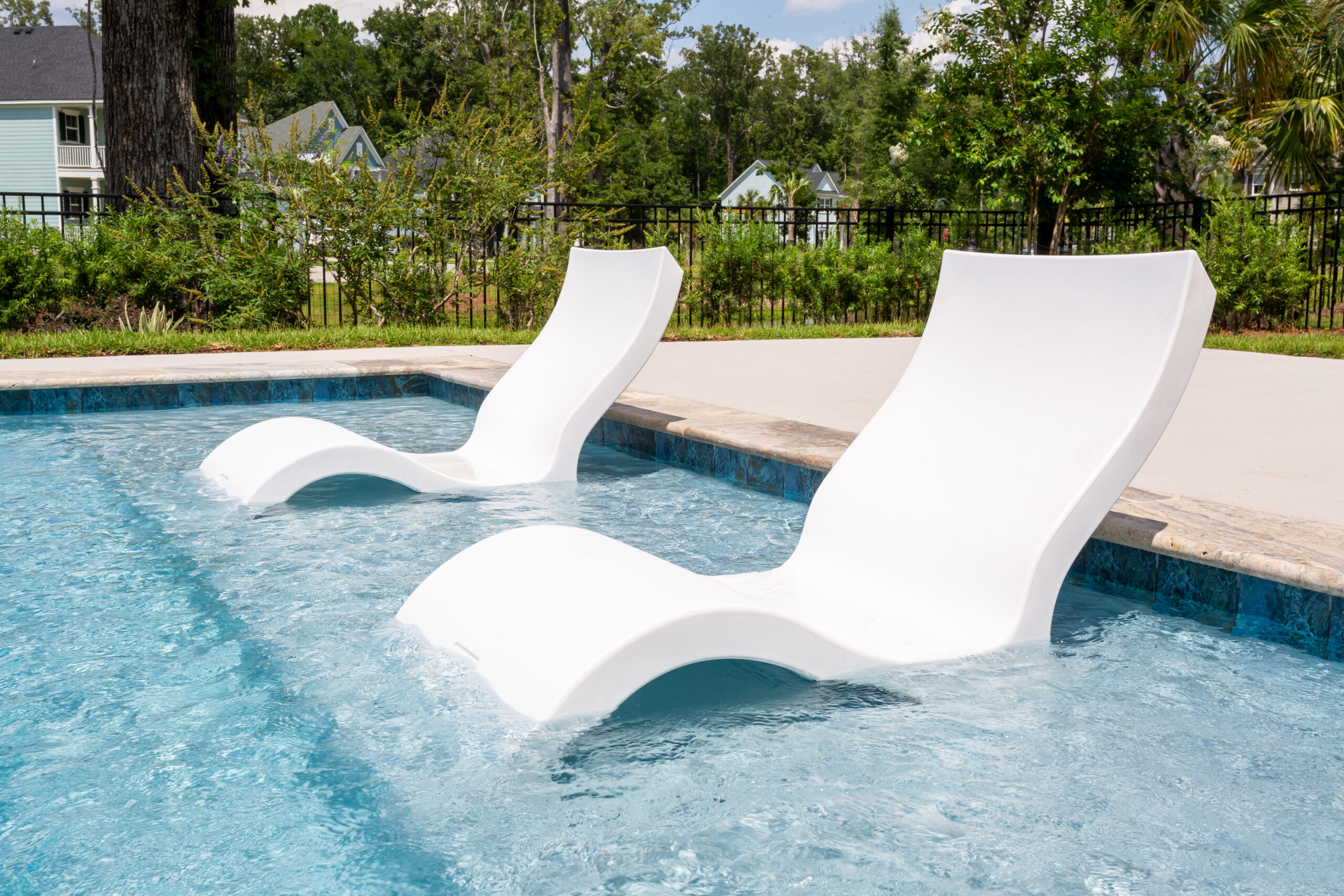Chlorine vs. Salt Systems: What You Need to Know
Understanding Your Options for Clean, Comfortable Water
Choosing between a traditional chlorine pool and a saltwater system is one of the most important decisions in pool ownership. Each method has unique benefits—and the right fit depends on your lifestyle, sensitivity, and long-term goals.
Chlorine Systems
Chlorine is the classic choice for pool sanitation. It’s highly effective at killing bacteria and algae, and adjustments are quick and familiar to most pool owners.
Benefits:
- Fast-acting and reliable sanitation
- Simple to control and adjust levels
- Compatible with all pool types
Things to Consider:
- Requires manual dosing or tablet feeders
- Stronger chemical smell and potential for skin or eye irritation
Regular handling and storage of chlorine products
Saltwater Systems
A salt system uses a salt cell to generate chlorine naturally from dissolved salt in your pool water. It’s still a chlorine pool—just with a gentler delivery.
Benefits:
- Softer, smoother feel on skin and eyes
- No need to handle chlorine directly
- Lower day-to-day maintenance
Things to Consider:
- Higher upfront equipment cost
- Salt can be corrosive to certain materials if not maintained
Still requires water testing and occasional shocking

Which One is Right for You?
If you prefer a traditional setup with full control, a chlorine system may suit you best. If comfort, convenience, and reduced handling appeal to you, a saltwater system could be worth the switch.
At Heritage Pools, we install and service both systems—tailored to your pool type, whether Concrete, Fiberglass, I-Beam, or Luxury custom builds.
Swim Here. Swim Smart.